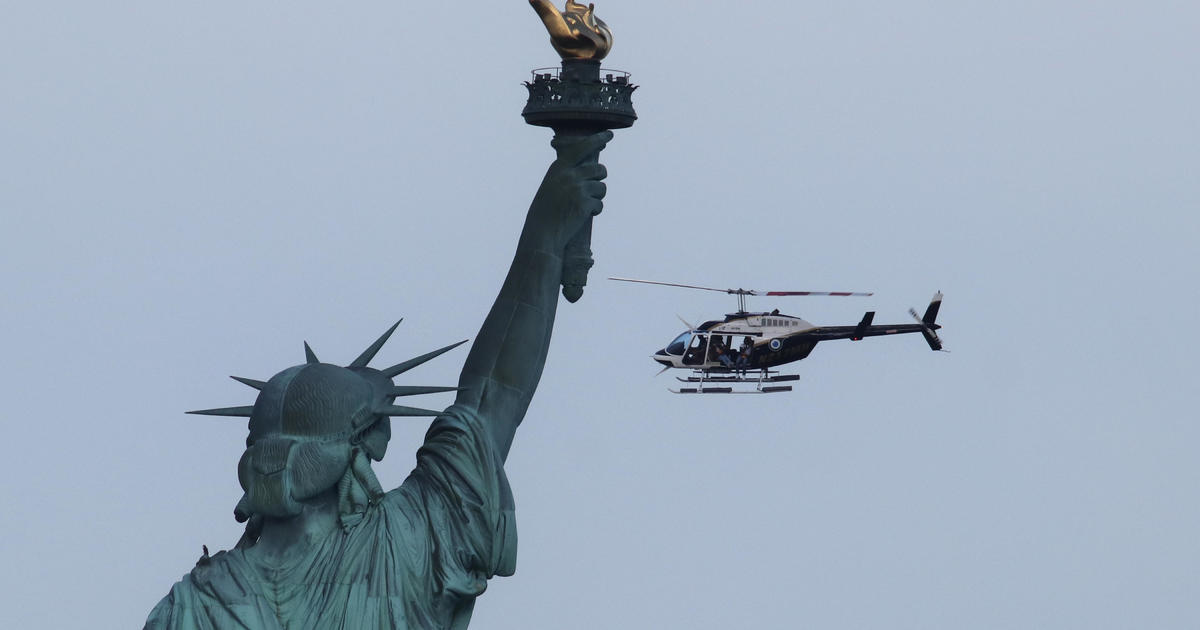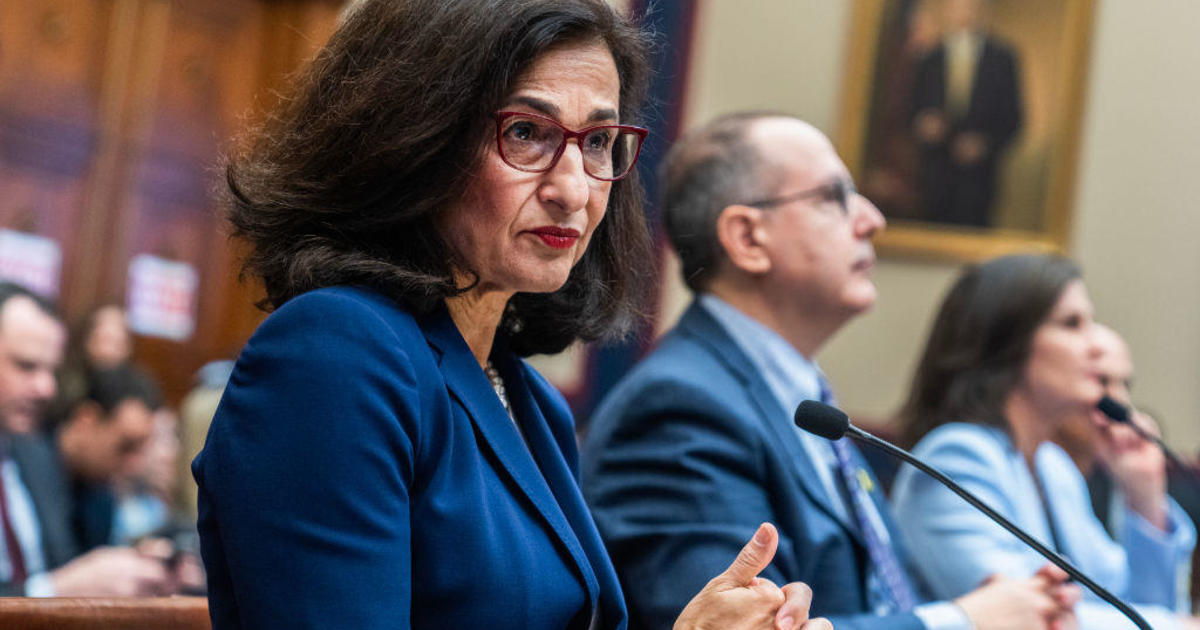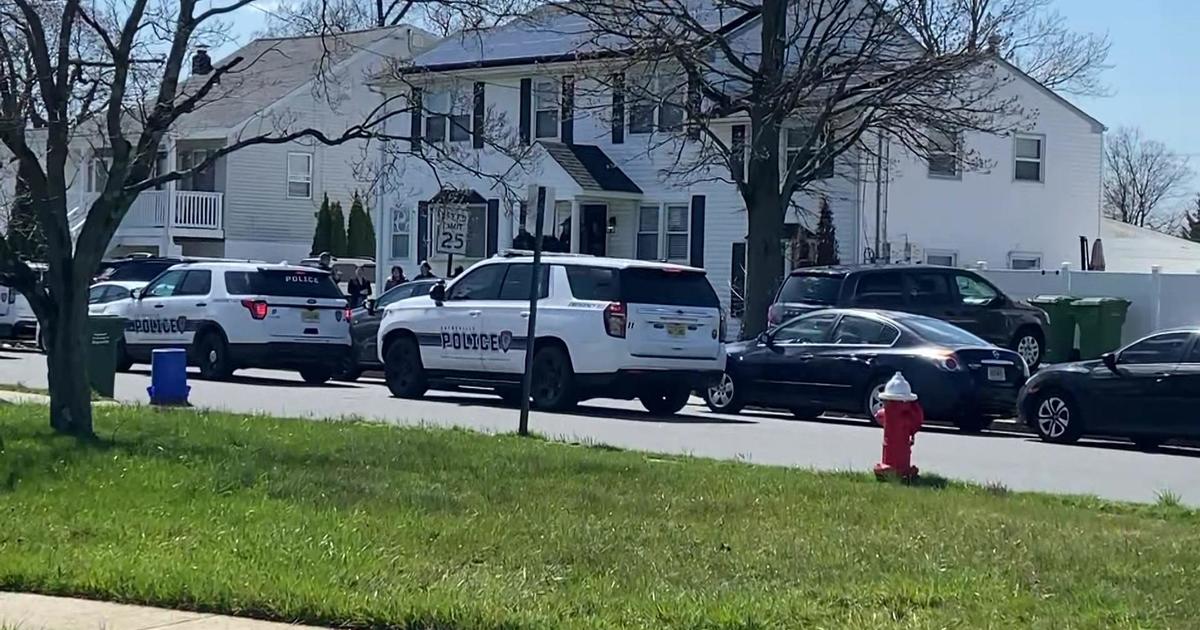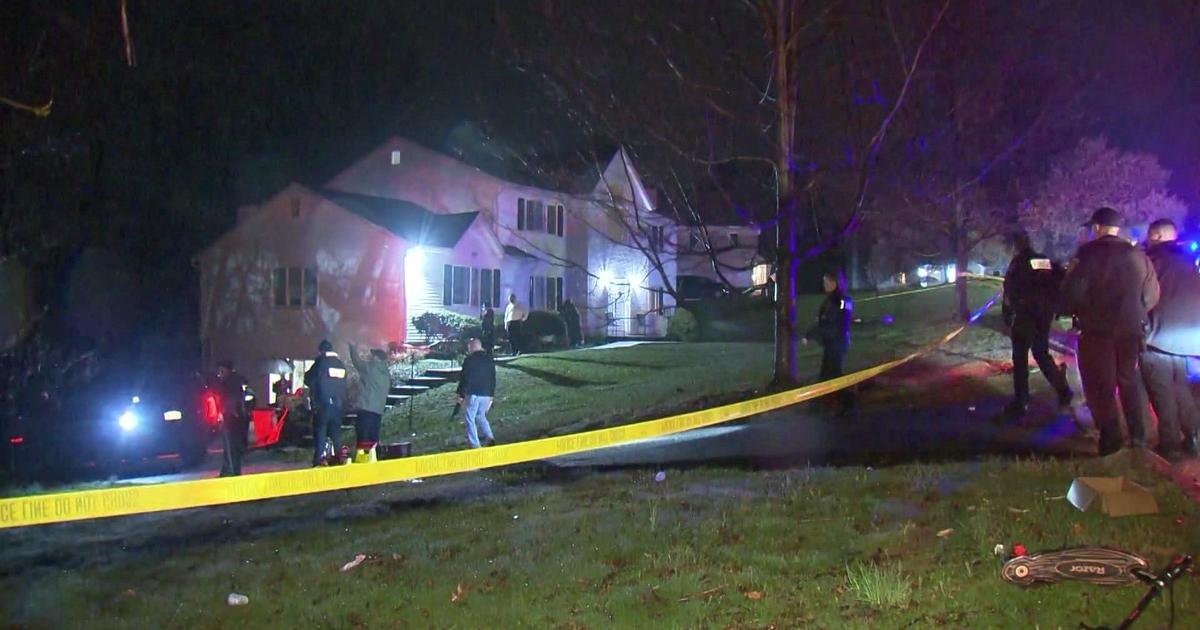Multiple Tri-State Area Schools On Sexual Assault Investigation List
WASHINGTON (CBSNewYork/AP) -- For the first time, the U.S. Department of Education revealed its list of 55 colleges under investigation on Thursday -- though no details of the complaints -- as the Obama administration sought to bring more openness to the issue of sexual violence on and around the nation's campuses.
New York schools on the list include City University of New York Hunter College on the Upper East Side of Manhattan, Hobart and William Smith Colleges in upstate Geneva, Sarah Lawrence College in Westchester County, and SUNY Binghamton.
Princeton University in New Jersey, and the University of Connecticut, were also on the list.
The other schools on the list range from public universities, including Ohio State, the University of California, Berkeley and Arizona State, to private schools including the University of Chicago, Knox College in downstate Illinois, Swarthmore College in Pennsylvania, and Catholic University of America in Washington, D.C. Other Ivy League schools besides Princeton, including Harvard and Dartmouth, are also on the list.
The government emphasized the list was about investigations of complaints, not judgments. Education Secretary Arne Duncan said there was ``absolutely zero presumption'' of guilt.
Few details of individual cases are known, but some are. One, at the University of Michigan in Ann Arbor, involves allegations of mishandling of a matter involving a football player. The investigation began after federal authorities received complaints related to the expulsion of Brendan Gibbons, a former placekicker.
A student group examined the school's student sexual misconduct policy and last month determined the university failed to explain a yearslong delay between the alleged incident and Gibbons' expulsion in December. Spokesman Rick Fitzgerald says the university has been ``fully cooperating.''
Schools on the list, for the most part, were unwilling to talk about specific incidents but said they have been working with the federal department to be more responsive to student complaints.
``We are hopeful at the end of this there will be a resolution that will strengthen our internal processes and result in a safer community,'' said Dartmouth spokesman Justin Anderson. ``There's always something we can learn and ways to get better.''
The release came two days after a White House task force promised greater government transparency on sexual assault in higher education, CBS News reported. Going forward, the department said, it will keep an updated list of schools facing such an investigation and make it available upon request.
WEB EXTRA: Read The White House Report (pdf)
The Obama administration's effort to bring more attention to the issue of sexual assaults is not limited to colleges.
Separately on Thursday, the Pentagon said that reports of assaults by members of the military have risen 50 percent since the beginning of a campaign to persuade more victims to come forward. Defense Secretary Chuck Hagel said he is ordering six initiatives to deal with sexual assaults, including efforts to get more male victims to speak up.
The college investigations are done under Title IX of a U.S. law, which prohibits gender discrimination at schools that receive federal funds. It is the same law that guarantees girls and women equal access to sports, but it also regulates institutions' handling of sexual violence and increasingly is being used by victims who say their schools failed to protect them.
The agency previously would confirm such Title IX investigations when asked, but students and others were often unaware of them.
Duncan said there had been ``lots of internal debate'' about whether to release the list but that transparency is important.
``No one probably loves to have their name on that list,'' Duncan said during a White House briefing. ``But we'll investigate; we'll go where the facts are. And where they have done everything perfectly, we'll be very loud and clear that they've done everything perfectly.''
The department can withhold federal funding from a school that doesn't comply with the law, but it so far has not used that power and instead has negotiated voluntary resolutions for violators.
About half of all states have schools under investigation.
Massachusetts has six, including Harvard College.
Harvard students filed formal complaints in late March to the department saying the college did not respond promptly to reports of sexual violence, that students were subjected to a sexually hostile environment, and that in some cases assault victims were forced to live in the same residence buildings as their alleged assailants.
``Harvard has taken a number of steps to foster prevention efforts and to support students who have experienced sexual misconduct,'' spokesman Jeff Neal said. They include appointing a Title IX officer to review policies and procedures.
Pennsylvania had five schools listed. New York state had four, as did California and Colorado.
Some investigations were prompted by complaints directly to the federal department; others were initiated by the department following compliance reviews triggered by other factors, such as news stories, the department said. Some schools wanted to note what triggered the investigation.
Indiana University-Bloomington, for example, said the federal department had confirmed that it didn't receive any complaints against the school ``that would have triggered an investigation.''
Similarly, the University of Massachusetts-Amherst also said it was being investigated under a standard compliance review and not because of any specific complaints.
At Sarah Lawrence College, a heavily female school on the list, a spokeswoman said the college has taken steps that include putting up posters advising students of what to do if they are sexually assaulted and requiring a ``consent and respect online'' course for new students starting this summer.
While being on the list might be difficult for schools, Duncan said, it pales in comparison to the difficulty and trauma borne by sexual assault victims on American college campuses.
``In terms of what's morally right there, the moral compass, whatever we can do to have fewer young women and young men having to go through these types of horrific incidents, we want to do that,'' Duncan said.
The White House has said that as many as 1 in 5 female college students is assaulted. President Barack Obama has appointed a task force of Cabinet members to review the issue after hearing complaints about poor treatment of campus rape victims and the hidden nature of such crimes.
The task force's report released Tuesday announced the creation of a website, notalone.gov, offering resources for victims and information about past enforcement actions on campuses. The task force also made a wide range of recommendations to schools, such as identifying confidential victims' advocates and conducting surveys to better gauge the frequency of sexual assault on campuses.
The department publicized guidance on Title IX's sexual assault provisions in 2011, and complaints by students have since increased. Complaints, however, don't always lead to an investigation.
Sens. Kirsten Gillibrand, D-N.Y., and Claire McCaskill, D-Mo., have said non-compliance under the law is ``far too common.'' They say a lack of federal resources is partly to blame for that, and they've sought more money to ensure timely and proper investigations.
In a statement Thursday, Sen. Richard Blumenthal, D-Conn., praised the release of the list but said the department needs to ``thoroughly and rapidly'' investigate the complaints.
Blumenthal said earlier this week that too often, the penalties for those committing sexual assaults on campus amount to a slap on the wrist.
"My eight roundtables around the state of Connecticut indicate that there is a need for stronger federal action to compel better reporting and action by the campuses and administrators against sexual assault," the senator told Schneidau. "A slap on the wrist is no punishment. Temporary suspension is inadequate as a disciplinary measure and students ought to be given an option to seek prosecution and stronger measures, sanctions within the university."
Blumenthal said another problem is that many campuses lack confidentiality codes and fail to provide necessary counseling for students victimized.
Another law that campus sexual assault cases fall under is the Clery Act, which requires colleges and universities to report crime statistics on or near their campuses. It also requires schools to develop prevention policies and ensure victims' basic rights. Investigations under this law are not included in the list that was released.
You May Also Be Interested In These Stories:
(TM and © Copyright 2014 CBS Radio Inc. and its relevant subsidiaries. CBS RADIO and EYE Logo TM and Copyright 2014 CBS Broadcasting Inc. Used under license. All Rights Reserved. This material may not be published, broadcast, rewritten, or redistributed. The Associated Press contributed to this report.)



